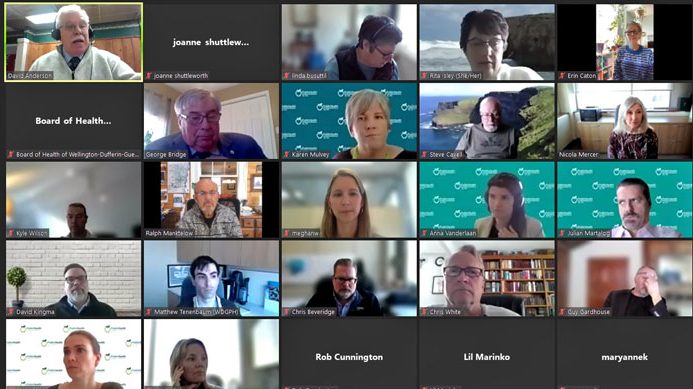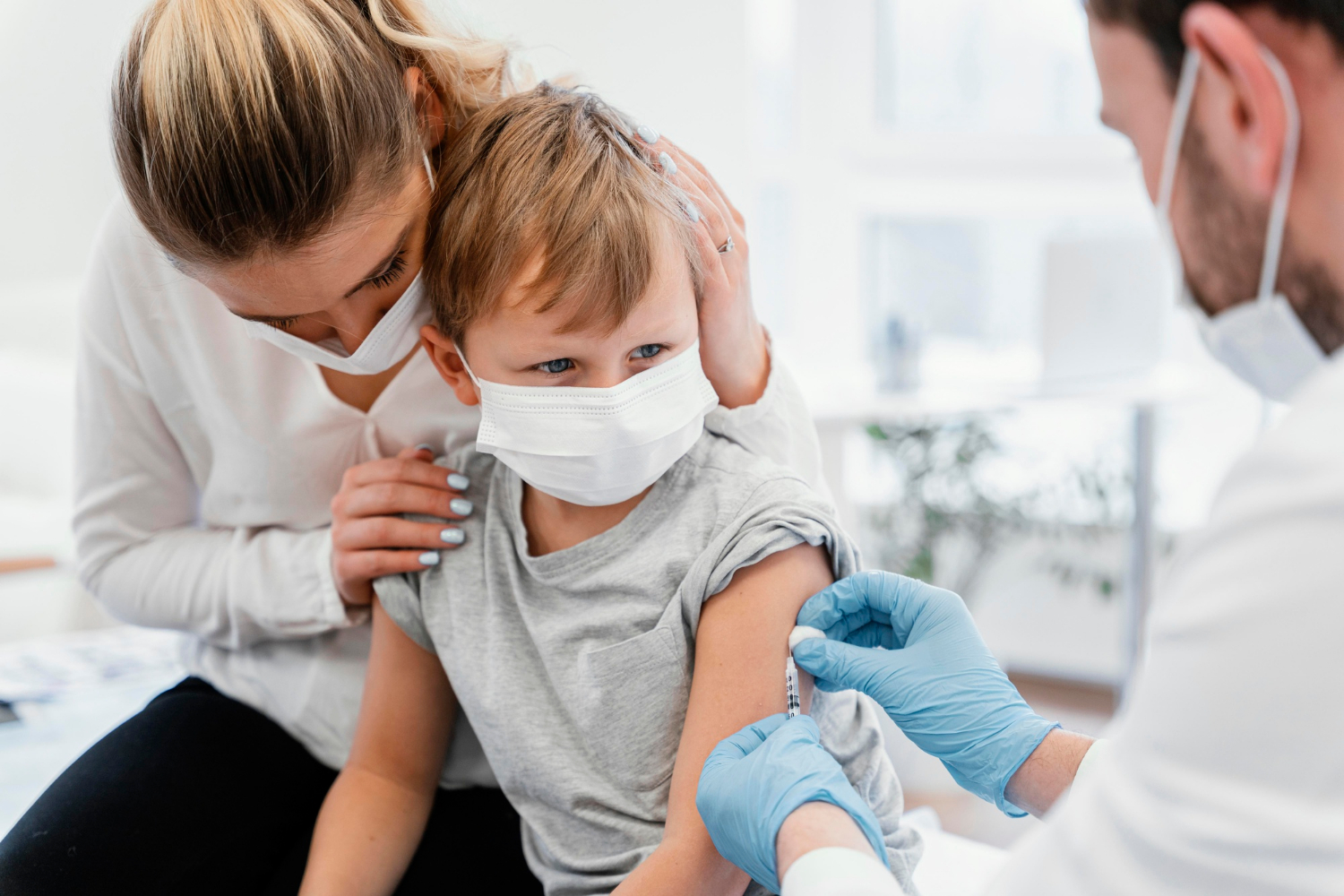GUELPH – Vaccination rates in Wellington, Dufferin and Guelph are dropping since the pandemic, but this is not a sign that recent opposition to COVID-19 vaccination mandates is sparking opposition to childhood vaccinations in general, public health officials say.
“Public health is not seeing evidence of an increase in anti-vaccination sentiment when it comes to school vaccines,” Wellington-Dufferin-Guelph Public Health (WDGPH) manager of communications Chuck Ferguson told the Advertiser.
It’s more an issue of access, manager of vaccine preventable diseases Karen Mulvey told the board of health at its Feb. 1 meeting.
“During the pandemic there was a lack of access to vaccines,” said Mulvey, noting public health had to cancel its in-school Grade 7 vaccination program during the pandemic as schools were closed and public health staff were redeployed to COVID-19 duties.
There was also limited access to doctors’ offices during that time and many people shied away from seeing their doctors because of the pandemic.
Children in Ontario are required to be immunized against nine designated diseases: diphtheria, tetanus, polio, measles, mumps, rubella, meningococcal disease, pertussis (whooping cough) and varicella (chicken pox).
The diseases can be deadly, and the vaccines are effective against acquiring and spreading them.
Parents can opt not to vaccinate their children for religious or conscientious beliefs, but must go through a process that includes watching an education video and submitting a notarized statement before receiving an exemption from public health.
Medical exemptions go through doctors, but public health still tracks those records.
Public health is required to maintain up-to-date vaccination records under the School Pupils Act.
In the event of an outbreak at school, unvaccinated children can be identified and removed from school, Mulvey said, for their own protection.
There are currently 1,321 exemptions on file in this region for religious or conscientious beliefs, with 62 new exemptions added during the 2021-22 school year, she explained.
Mulvey also presented vaccination rates for three of the vaccine-preventable diseases: measles, meningitis, and polio.
The data indicates a drop in measles and polio vaccination rates and a slight increase in meningitis vaccinations rates from 2017 to 2022.
In 2017-18, 95% of children had their polio shot, 91.8% had their measles shot and 75.4% had their meningitis shot.
At the start of the pandemic in 2019-20, the polio vaccination rate dropped to 94.8% and measles to 90.1% while the vaccination rate for meningitis rose to 83.7%.
By 2021-22, the vaccination rates fell to 90.9% for polio and to 83.3% for measles, while meningitis increased to 88.5%.

Screenshot from Board of Health meeting on Feb. 1.
WDGPH also administers the Grade 7 vaccination program, where children are immunized against the human papilloma virus (HPV), hepatitis B virus (HB) and meningitis.
The health unit restarted those programs last year but is still playing catch-up with the cohort missed in 2020, 2021 and 2022.
Last year it held clinics in high schools to capture the students missed in Grade 7 who had moved on to high school.
It sent out second reminders directly to parents, as well as robocalls and text messaging, which was new to the organization.
It also held community-based clinics in satellite locations, at youth shelters, the Grove youth wellness hubs and sent the vaccines to primary care offices.
Public health reaches public, private and parochial schools and there is an urgency to get to the parochial schools before those students who finish school after grade 8 become more difficult to locate, said chief nursing officer and director of community health Rita Isley.
“During the pandemic we went to parochial schools and 78 students were vaccinated,” Isley said.
But that’s not the norm, said WDGPH Medical Officer of Health Dr. Nicola Mercer.
“We frequently are not successful in parochial schools,” Mercer said. “Not all schools will allow us to vaccinate students.”
Isley said public health works with religious and cultural leaders in all hard-to-reach communities to improve vaccination rates.
On the topic of schools, school health program manager Meghan Wiles presented a report to update the status of the school-focussed nurses initiative.
The initiative launched during the 2020-21 school year to provide support related to the COVID-19 pandemic in schools, childcare centres and camps across the province.
WDGPH hired 14 temporary, full-time public health nurses to fill the role.
They helped schools develop reopening plans and did school case and outbreak management.
In Sept. 2022, the government announced it would continue funding the program until June of this year.
But with COVID-19 cases on the decline, these school-focussed nurses are now turning to health promotion and education and are helping schools achieve Healthy Schools certification.
Schools select three health concerns from the list of priority topics to focus on and these nurses help schools develop a plan to achieve the certification.
The list includes mental health, physical activity, healthy eating, injury prevention, growth and development, and substance use.
“The flexibility provided by the school-focussed nursing initiative has allowed the school health team to resume school health promotion activities during the 2022-2023 school year,” Wiles stated in her report.
“This work is critical to achieving the optimal health of school-aged children and youth in WDG, particularly in the wake of the pandemic.”
The board accepted two reports for information.



